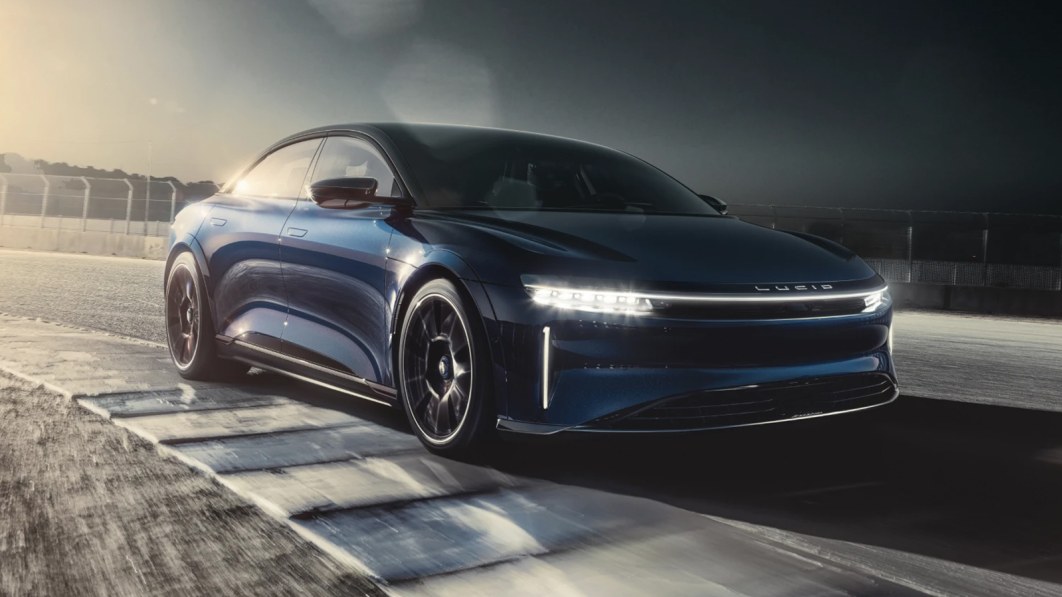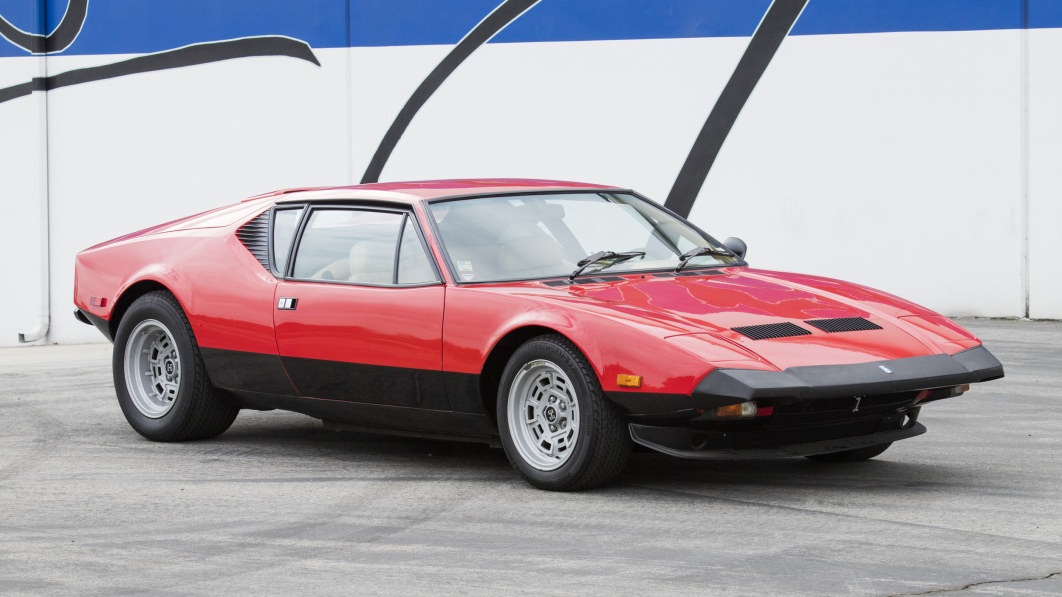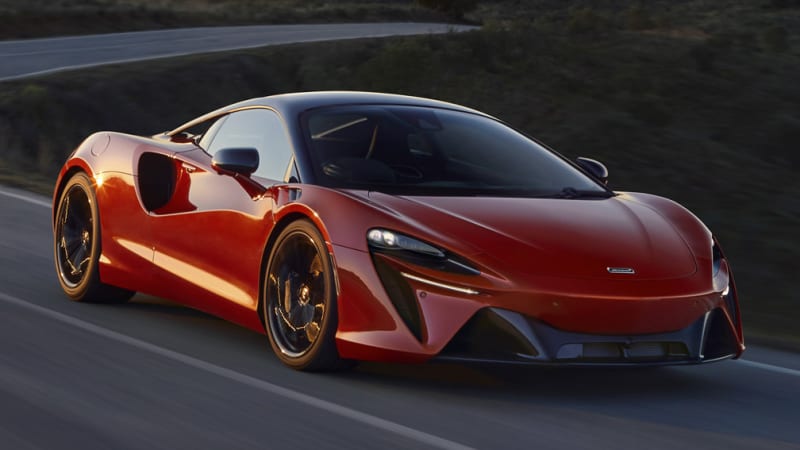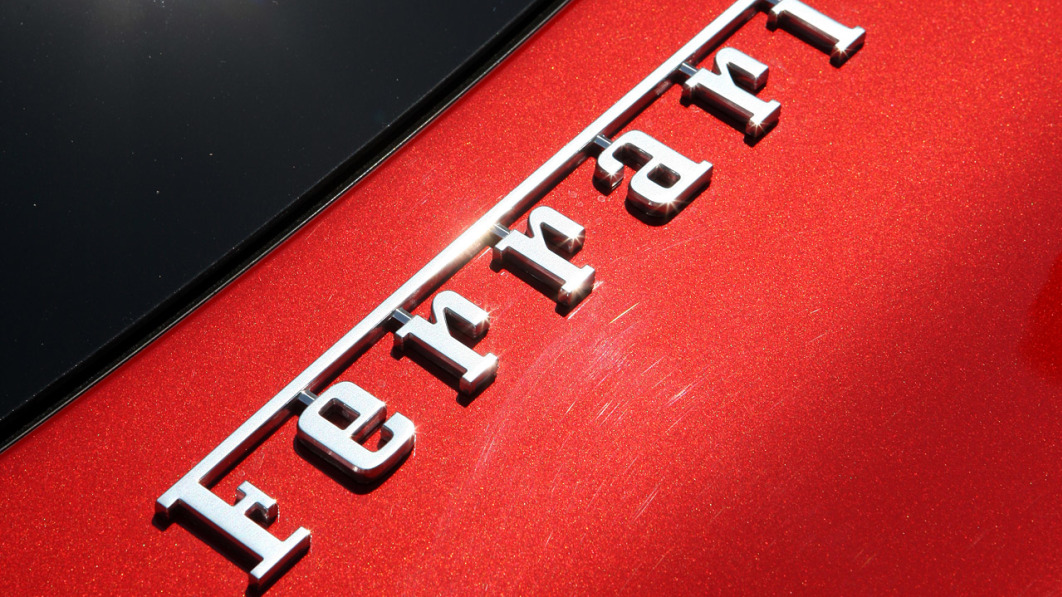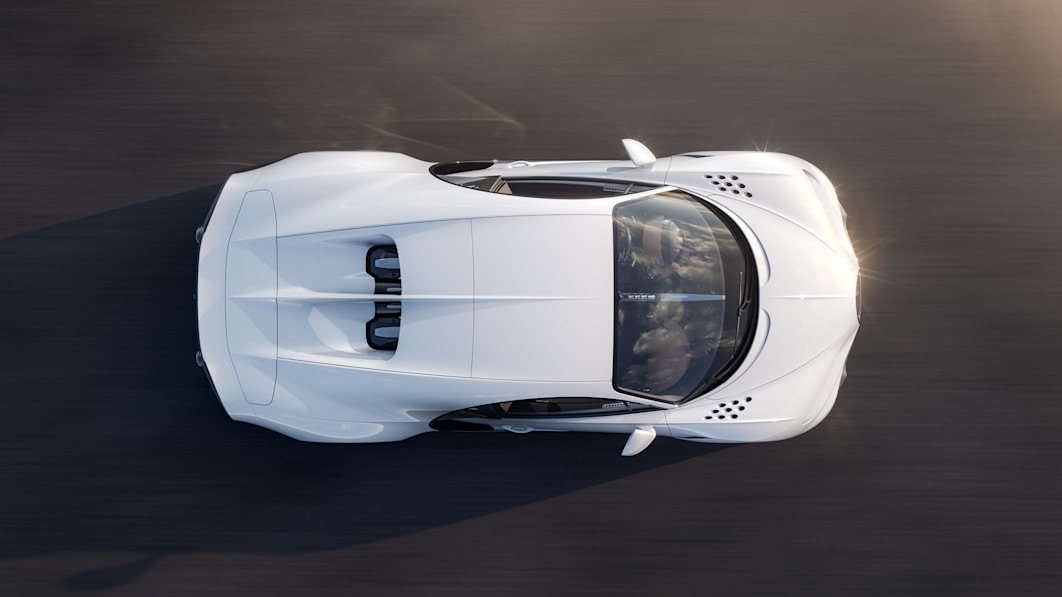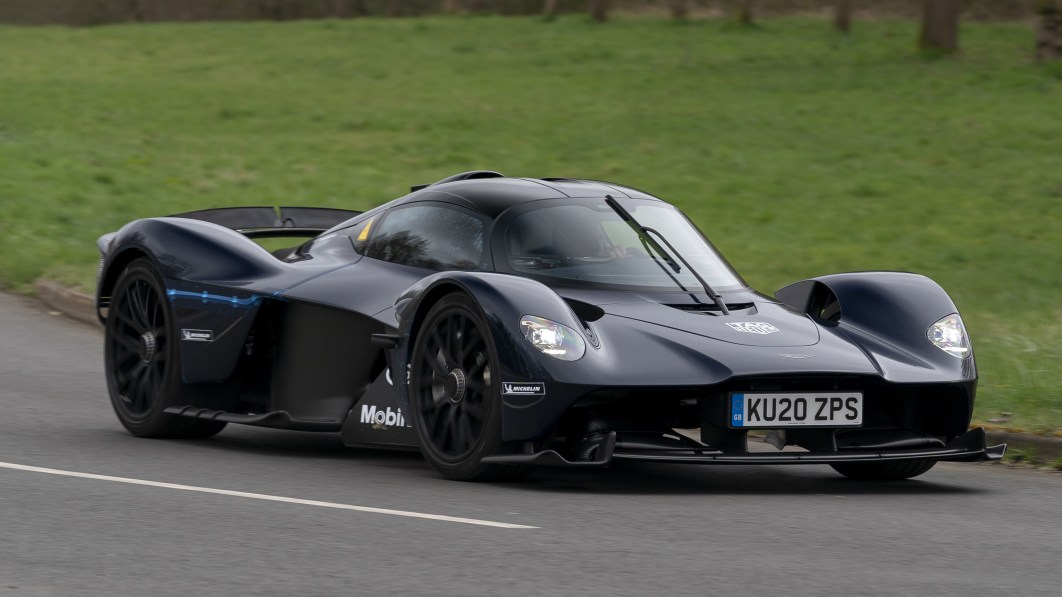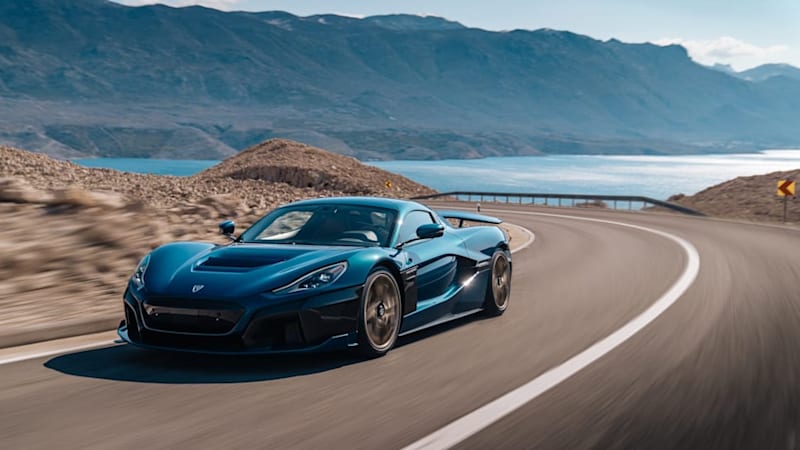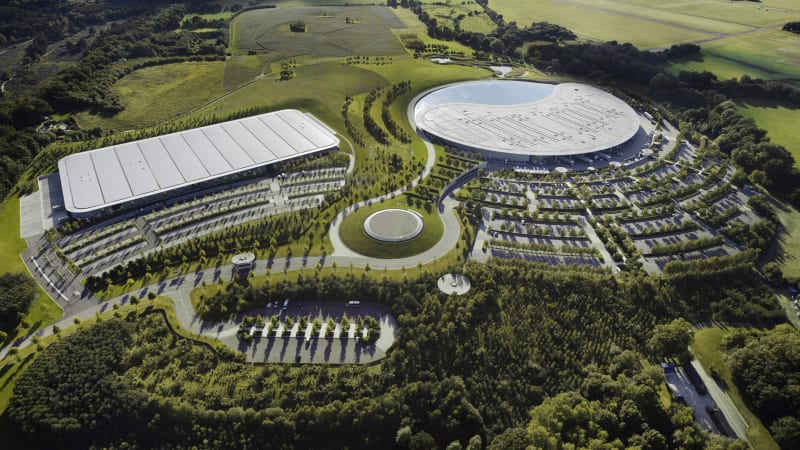Aston Martin ties up with Lucid, extends deal with Mercedes-Benz
Aston Martin Lagonda Global Holdings is tying up with Lucid Group Inc. on electric vehicle technology, uniting the storied British carmaker and relative automotive newcomer both backed by Saudi Arabia’s sovereign wealth fund.
Aston Martin will pay $232 million in shares and cash to Lucid in exchange for battery-electric powertrain components, the companies said Monday. The UK manufacturer also extended a years-long cooperation with Mercedes-Benz Group AG, though it will no longer issue more stock to the German carmaker that already owns a roughly 9% stake.
The announcements sent Aston Martin shares soaring as much as 15%, their biggest intraday jump in over a month, while Lucid advanced as much as 9.1% in premarket US trading.
“The proposed supply agreement with Lucid is a game changer for the future EV-led growth of Aston Martin,” Chairman Lawrence Stroll said in a statement.
Stroll, 63, is three years into an effort to turn around the 110-year-old British manufacturer with a long history of financial trouble. Aston Martin has needed several capital raises since he rescued the company in early 2020, the most recent of which made China’s Zhejiang Geely Holding Group Co. and Saudi Arabia’s Public Investment Fund major shareholders.
The Public Investment Fund, or PIF, owns about 49% of Lucid and 18% of Aston Martin, according to data compiled by Bloomberg.
Aston Martin’s longstanding financial woes have made it increasingly reliant on partners for technology that other automakers consider core to their products. Models including the DBX sport utility vehicle and DB12 sports car are powered by Mercedes engines.
While Mercedes will continue to provide access to powertrains and electric architectures for current and future Aston Martin vehicles, Aston Martin will pay in cash rather than shares as previously planned.
An Aston Martin spokesman said Lucid’s technology is available now, whereas Mercedes’s AMG electric platform isn’t accessible until late 2025.
The deal with Lucid — which has been producing its lone EV, the Air sedan, since September 2021 — will help Aston Martin toward its ambitious electrification targets. The UK carmaker plans to launch its first plug-in hybrid supercar, the Valhalla, early next year and its first battery-electric vehicle in 2025. By the following year, all new product lines will have an electrified powertrain option.
Aston Martin said it will make phased cash payments to Lucid totaling $132 million and has committed to spending at least $225 million on the EV maker’s powertrain components. Aston Martin also will pay another $10 million to Lucid for integrating its technology into its vehicles.
Related video:

